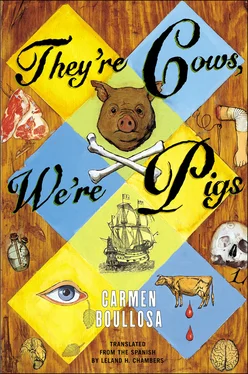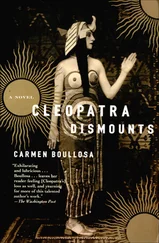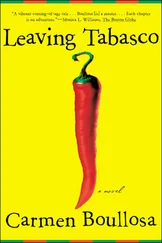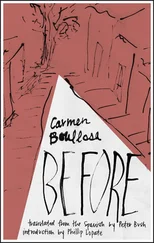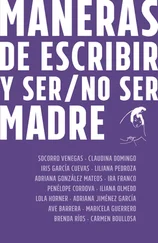Carmen Boullosa
They're Cows, We're Pigs
To Alejandro Rossi
and to David and Gillian Berry Arango,
the newest of tiny newborns.

In 1678 De Americaenesche Zeerover ( The Buccaneers of America ) was published in Flanders. The story, now one of the most enduring in the literature of the Americas, traveled through time, place, many cultures and translations, each time bearing the stamp of its surroundings. For example, I noticed that in order to favor certain biases the Spanish translation of The Buccaneers of America was altered by expanding or abbreviating passages and reshaping the roles of some of the characters. And just when I thought that this version was essentially an authentic retelling of actual events, a more recent Cuban edition came into my hands, and its structure and wording had almost nothing in common with any version I’d seen up to then. All seemed to bear the signature of Alexander Olivier Exquemeling, native of Flanders, but as far as the identity of Exquemeling, a.k.a. Smeeks, goes, this remains rather in question, and there are those who maintain that the publisher or translator is the true author of the book.
What better point of departure, I thought, for a novel? The series of fictions before me allowed me to give free rein to my own very personal point of view. I first thought of making the book itself the principal character, but I ended by giving in, completely captivated, at the feet of Smeeks, by surrendering to Exquemeling, “the pirates’ physician.” The difficult, unstable terrain where the tale originated interwove with the mystery that carries a novelist into a novel, and so I entered the community of the Brethren of the Coast, into that first attempt to forge a socialist, antimonarchical society in the Caribbean. Their hatred for the Spaniards, their alienation from the European order, were very appealing to me.
But none of these reasons are sufficient to explain how this book came to make me its own, a vehicle for Smeeks, and forced me to retell it anew, to set it down on paper. We are all many things, hybrids formed of different identities. If truth be known, I am much more cow than pig. My natural affinity is with those of a more settled life, and I believe that not to defend the weak is the quickest path to ignominy. But even more important, I’ve cast my lot with the universe of the feminine. The Brethren of the Coast proclaimed the equality of all races, all nations, and were rather tolerant concerning all the sexes — except the female: women were forbidden in their community. In its series of adventures, this novel is then a laboratory of things feminine in absentia as much as it is a reminiscence of men who rebelled against a cruel order, an outlaw order, and ended by being as cruel and outside the law as the order they detested.
This is not, however, simply another translation of Smeeks’s book. I have not falsified anything, but merely allowed the novel to conquer me, to secure for me the resources for entering into the complex world of the Caribbean, completely reenvisioning my own generational biases. For years my generation was fascinated by the Cuban experiment and by sexual freedom, and I would like to believe that it continues to be concerned with the liberation of women and the richness of androgyny.
In the explosive end of our own century, all human dreams seem mired down. But, like many others, I still have hope. Stendhal wrote, “After geometry, there is no better way to think than on the basis of events.” Maybe that is why I wrote this adventure story, told from inside the rhythm of Smeeks’s body: to delve into the silences in our history as well as into the validity of a dream that was unable to realize itself cleverly enough to escape the character of its time. Through Smeeks, I wanted to look into dreams destroyed in their time, to think actively, by telling a tale, perhaps, like Scheherazade, to stave off the arrival of death.
No one in this world who does not steal can live in it. Why do you think the judges and officers of the law hate us so? Sometimes they banish us, sometimes they have us whipped, and sometimes hanged, even though our saint’s day may yet not have arrived.… It is because they do not want any other thieves besides themselves and their underlings around them. What keeps us free more than anything else is an ample stock of clever guile .
— Quevedo, La vida del Buscón
To be the slave who lost his body
so words might come to live in him.
To bear as bones innocent flutes
that someone plays from far away,
or maybe no one. (The breath alone
is real, plus the yearning to
decipher it.)
To be the slave when all are sleeping
and incite the persevering
splendor of the sibling lamp.
Always fearfully on watch
before the stars, unable to
equivocate when they awaken
though the world is under water
and night puts shadows on the page .
To be the slave, pariah, alchemist
of accursed metals—
transmuting boredom into agate,
into gold our human clay,
so no one will toss him to the dogs
when he yields up his share.
— Eugenio Montejo,
Alphabet of the World
which treats of the arrival of Smeeks
in Tortuga and how and with whom
he learned the trade of
physician and surgeon

See it? All of it have I seen. For good reason am I in possession of the eyes of J. Smeeks, to whom some attribute the name of Oexmelin and who, in public, not to bring attention to his person, calls himself Exquemeling, Alexander Oliver Exquemeling, even though my name is Jean Smeeks, or “Le Trépaneur” the times I was companion to J. David Nau on his expeditions, the same who was known as L’Olonnais among his own men and Lolonés to the Spanish, the son of a small merchant of Sables d’Olonne — hence his surname. I wandered about even when a child, with such long legs and a body so nimble and fleet that sometimes I would not be seen at home for several days at a time.
Hear it? I have heard all of it, because I also have Smeeks’s ears. Together, eyes with ears, they will begin with me to relate the stories of Smeeks in the Caribbean and also of those I shared adventures with, such as the above-mentioned Nau, L’Olonnais, of whom I heard it said that he allowed himself to become an indentured servant to a colonist from Martinique who was passing through Flanders and got him to sign a three-year contract for the West Indies, a brutal master, only good for beating him tirelessly, so that in a short while, although on Martinique by then, the youthful Nau soon found slavery unbearable. Yet it was a good thing he was there, else no other recourse would have remained during the voyage but to throw himself into the ocean headfirst. I can neither imagine what Nau did to get away from his master on Martinique, where it was quite as impossible for him to do so as on the broad sea, nor can I explain here how it was that he escaped from the island, since no one ever told me what stratagem he used (he that was so good at contriving them) for managing to take flight with some buccaneers from Saint-Domingue who were selling cattle hides on Martinique.
Читать дальше
